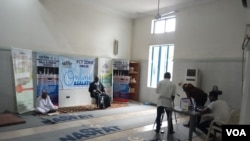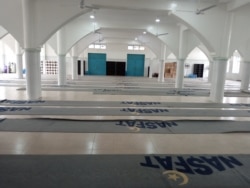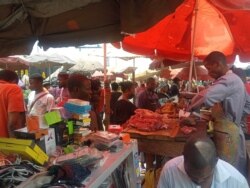The Muslim holy month of Ramadan is beginning with many countries in lockdown over the coronavirus — including Nigeria, which is home to West Africa's largest Muslim population.
Nasir Umar, 27, an automobile electrician, has not fixed a single car in three weeks because of the lockdown measures announced by Nigerian authorities in late March to flatten Nigeria's coronavirus curve.
Having sent his wife and child to his father's house in Maidiguri to reduce his financial burden, he sometimes strolls to his shop near his residence, hoping to find work.
Now, without money to send them and with Ramadan approaching, Umar says he may skip the traditional feast to break the daily fast this year.
Food is basic for life and important during fasting, he says, but without food, he cannot fast.
This year's Ramadan has been described by many as the "lockdown edition," as practices like communal prayers and breaking the fast with a feast called Sahur will now be curtailed by COVID-19 restrictions.
Abuja Muslim cleric Isa Mohammed says unless the ban is lifted, the faithful cannot congregate at mosques to pray and will have to observe their prayers privately at home.
Mosques throughout Nigeria have been shuttered, and many people are using the internet and social media to gather virtually for prayer.
However, Muslim scholars such as Sharafadeen Abdulsalam say some prayer routines and rituals cannot be done online.
"There's nothing like online Jumat, you can't do that," he said. "You can't ask people to form a row in their respective homes and follow you while you lead them in prayers. No, you can't do that. The Jumat service has to be physical."
His Abuja mosque, which usually hosts 700 underprivileged Muslims a day for large meals to break their fast during Ramadan, has been shut for nearly one month.
Abdulsalam says it may be safer for some followers to skip this year's fasting if they have no food.
"Islam is a simple way of life. If you cannot have what to eat during Sahur and you know surely that if you try it, it will affect your health ... Islam doesn't want anyone to fall down. ... You are allowed to leave your fasting. That is Islam for you," he said.






